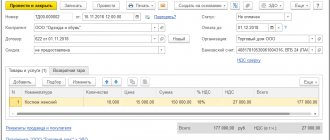Rosstat claims that in 2021 in Russia only 30 thousand out of 67 million employees officially worked under an employment contract for remote work. This is very little and weakly reflects the real state of affairs. To correct the imbalance, in 2021 they plan to make changes to the Labor Code that will more accurately describe what remote work is and legalize the concept of combined work. This will allow the employee to officially spend part of his working time in the office and part at home. Let's figure out what Article TC 49.1 says about remote work now and how it is likely to change in the next year.
What is remote work: benefits
One of the main advantages is the seemingly banal lack of travel time. Instead of spending several hours in the subway or traffic jams on the way to your workplace, you can spend them more productively (paying attention to family, training, self-development). Other advantages of working at a distance:
- Opportunity to get a job in a large company at a high salary. This is especially true for residents of the “outback”, where the demand for “sales people” or “IT specialists” is small.
- Less communication with people - colleagues, clients, partners.
- Saving money on compliance with the dress code and other attributes of business ethics.
- You can work on several projects at once with different employers.
- A remote work schedule gives you the opportunity to create your own schedule and start a project whenever you want.
Do you want to implement Warehouse 15? Get all the necessary information from a specialist.
Thank you!
Thank you, your application has been accepted!
Conclusion
Thanks to the adoption of the new law on remote work, the position of remote workers has become more certain and stable since the beginning of 2021. Now such specialists are more protected from discrimination in terms of pay and working conditions.
The new edition of the Labor Code of the Russian Federation has provided additional opportunities for employers. Now they can, in some cases, force their employees to work remotely, as well as fire them on their own initiative for violating the rules of remote interaction.
The new law also made electronic document management more transparent and understandable for all parties to labor relations.
Disadvantages of remote work
Negative aspects of non-office work include:
- the need to tune in to solving specific problems, often in a short time;
- lack of live communication;
- the lines between paid work and rest are blurred;
- more complex professional development;
- equipment and other tools must be purchased at your own expense.
But the main thing is that when performing technical tasks remotely, according to a relatively free schedule, your working day becomes irregular.
What has changed in the procedure for dismissing remote employees
The version of the Labor Code of the Russian Federation in force in 2021 allowed the employer to include any grounds for dismissal in the employment contract with a remote employee.
Now for remote workers, only two additional grounds for dismissal at the initiative of the employer are allowed, compared to the standard rules (Article 312.8 of the Labor Code of the Russian Federation):
- If the employee, without good reason, does not respond to the employer’s request within the established period. “By default” this period is 2 working days, but the parties to the employment contract can determine a longer period.
- If an employee has moved and the change of place of work has led to the fact that the job function can no longer be performed under the same conditions. This situation may arise, for example, due to a significant difference in time zones.
In all other situations, the employer can dismiss remote employees on his own initiative only according to the general rules specified in the Labor Code of the Russian Federation.
Where and how to find
Searching for vacancies remotely differs in some ways from classic office employment. To begin with, it is important to understand how and why remote access (distance) work is called that way. There are often advertisements on the Internet about virtual, home-based and other types of employment, each of which has its own characteristics. To find offers that are relevant to you, you must use the following methods:
- browse thematic sites;
- visit freelance exchanges;
- study corporate online platforms of large companies;
- use word of mouth, etc.
The nuances of transferring to remote work
The first thing an employer who wants to transfer staff to remote work must do is obtain consent from the employee. Moreover, such consent must be in writing . The employer does not have the right to unilaterally change the essential terms of the employment contract, which include the mode and place of work.
If an employee agrees to work from home, then the HR specialist should amend the employment contract . It is worth noting that such adjustments can be made by concluding an additional agreement with the employee. In this case, there is no need to renew the employment contract.
A standard form of an additional agreement to a contract can be obtained from any legal reference system or on the Internet in the public domain. The additional agreement form template can be supplemented or changed.
The additional agreement must state that the employee’s work mode is changed to remote. If the additional agreement does not specify the start and end times of the working day, this will mean that the specialist has the right to perform his job duties at any time. Therefore, if it is important for the employer that the employee, for example, from 09:00 to 18:00 be near the computer or answer phone calls, then a similar condition about the beginning and end of the working day must be included in the text of the additional agreement.
Another important condition of the additional agreement is the place of work . If the employment contract with the employee may not specify the place of work, then for a remote worker this is a mandatory condition. In the “place of work” section, you must indicate the address of the person’s actual place of residence.
It is worth noting that the employee’s situation should not worsen . That is, the employer does not have the right to reduce wages or increase the working hours.
The contract must also indicate the amount of compensation for the use of personal Internet, telephony and other expenses. This is in order to preserve the employee's real income . If a person worked in an office, then similar expenses would be paid by the employer.
Calculation of compensation for personal expenses should be based on actual time worked. If an employee has, for example, a 5-day and 8-hour working day for 2 weeks, then the calculation is made as follows:
- March has 31 calendar days. There are 744 hours in total in March (31*24).
- The employee worked at home for 10 days, 8 hours each, that is, 80 hours or 10.75% of the total time.
- The electricity bill was 1000. The employer must compensate 107.5 rubles (1000*10.75%).
A similar calculation is provided for the Internet and mobile communications if the employee does not have a corporate SIM card or IP telephony.
Payment of compensation for personal expenses to remote employees is possible only upon presentation of a receipt or invoice for services.
To avoid further disputes, the contract should indicate a specific list of personal expenses that the manager will compensate.
The employer should develop and assign deadlines and forms for reports on work done for such employees. Otherwise, it will be difficult for the manager to monitor the work process. In addition, it is necessary to stipulate the possibility of holding meetings, for example, via a Skype conference or renting a web room on a website.
And the most important thing is the deadline for transferring to remote work. That is, if this condition is not specified in the contract, then it is considered that the employee has been transferred to remote work until a new additional agreement is concluded. If the transfer to remote work is carried out before a certain date, then it is better to indicate the start and end dates of the transfer to remote work mode.
Remote scams: what is it?
With the development of information technology and the increasing demand for remote specialists, the level of deception is also growing. Signs of fraudulent schemes include the following offers:
- with a salary higher than the market one;
- where the employer, as a trust note, asks to transfer money (for example, to pay for registration, to confirm the seriousness of intentions);
- with a huge test task;
- when the ad is too embellished and does not correspond to real life;
- vacancy with incomplete description.
When searching for employees, organizations use professional personnel officers who describe the requirements in detail, conduct interviews and do not require the provision of any confidential data.
Technologies for organizing remote workplaces
How to ensure safety?
Protection of personal information. Maintaining trade secrets. Client base. To ensure that all this is safe, you must follow a number of recommendations:
- use complex passwords consisting of numbers and letters of different cases;
- use data encryption;
- different websites have different passwords;
- enable safe mode on websites;
- use two-factor authentication;
- exiting sleep mode is also after entering the password.
How to understand the difference between remote work and freelancing
Very often, applicants confuse these concepts. Main difference:
| Freelancer | Remote worker | |
| Status | Specialist in private practice | Registered with the staff |
| Existence of contractual relations | A remote employment contract is officially concluded | No agreement |
| Type of cooperation | For one company | On specialized exchanges, with different projects |
is one of the leading developers of mobile accounting systems for radio frequency tags and barcodes in Russia. Our software is an excellent opportunity to automate many business processes, including inventory, working with goods in a warehouse, labeling, etc.
Now you know what it’s called and what remote work outside the office is like. If you feel that working at a distance is what you dreamed of, feel free to look for a suitable vacancy and try to get a job.
Number of impressions: 758
Changes to the Labor Code of the Russian Federation in 2021
On June 16, 2021, bill No. 973264-7 “On amendments to the Labor Code of the Russian Federation regarding the regulation of remote and remote work” was submitted to the State Duma for consideration.
The changes will affect Chapter 49.1. “Features of labor regulation for remote workers.” Legislators propose calling it “Features of regulation of remote and temporary remote work.”
The bill proposes to consolidate the equality of the concepts of remote and remote work, to add provisions to the Labor Code of the Russian Federation on temporary remote (remote) employment and to improve the current provisions of Article 49.1 by eliminating outdated norms.
Legislators propose to establish three types of employment: remote (remote), temporary remote (remote) and combined (work in an office or factory combined with work from home or another place).
In the draft federal law, State Duma deputies also want to adjust the norms of Chapter 49 “Features of regulation of the work of home-based workers”, making them more progressive in terms of regulating home-based work.
The State Duma will consider this bill soon, in July 2020.
Features of termination of an employment contract with a remote worker
An employment contract with a remote worker may be terminated on the grounds provided for by the Labor Code. Labor legislation does not provide for special grounds for terminating an employment contract with a remote worker.
The remote worker must be familiarized with the employer’s order to terminate the employment contract in person under signature or by exchanging electronic documents (Article 307-5 of the Labor Code). In the latter case, on the day of termination of the employment contract, the employer is obliged to send the remote worker by registered mail with notification a duly executed copy of the specified order on paper. In this case, evidence of the employer’s fulfillment of the obligation to familiarize the remote worker with the order to terminate the employment contract is, in our opinion, confirmation by the employee of receipt of the electronic document (see above), as well as a notification of delivery of the postal item, signed by the addressee (Article 307-5 TK).
Taking into account the possibility of electronic document flow between the employer and the remote worker, the latter’s resignation letter may contain a request to forward the work book indicating the sending address (Part 1, 3, Clause 74 of the Instructions on Work Books).
Upon dismissal, a remote worker is provided with all guarantees and compensation provided for by law, the employment contract, and the employer’s LPA.
Working hours and rest hours for a remote worker
The working hours and rest hours of a remote worker are established by agreement with the employer by an employment contract or determined by the employee independently, which is indicated in the employment contract. The organization of recording working time and rest time, the need to provide breaks during the working day are determined by the employment contract (Part 2 of Article 307-4 of the Labor Code).
The need for the employer to establish working hours and rest time for a remote worker is determined based on his job function as provided for in the employment contract (for example, if the employee is required to accept applications from customers at strictly regulated times). If there is no need to perform duties in a certain mode, the remote worker, at his own discretion, distributes working time and rest time.
At the same time, the remote worker is subject to the general rule regarding the duration of working hours, which cannot exceed 40 hours per week, and in some cases the remote worker may be assigned a reduced working time (for example, if the remote worker is disabled) (Articles 112, 114 TK).
By agreement of the parties in the employment contract, a remote worker may be assigned part-time working hours.
The organization of recording working time and rest time is determined by the employment contract (Part 2 of Article 307-4 of the Labor Code). We believe that this process can be automated depending on the methods of interaction between the employee and the employer and the software, hardware and equipment used.
Occupational Safety and Health
In relation to an employee working remotely, the employer is generally obliged to ensure:
- investigation in accordance with the established procedure of industrial accidents and occupational diseases;
- compliance with instructions issued by the labor inspectorate;
- compulsory insurance against industrial accidents and occupational diseases;
- familiarizing the employee with labor safety requirements when working with equipment and tools recommended or provided by the employer.
Other labor protection measures in relation to remote workers must be carried out only if this is stated in the labor or collective agreement, or by local regulations (new Article 312.7 of the Labor Code of the Russian Federation).
Prepare labor safety documents in a special service Try for free
What makes freelancing different from other activities?
Remote work involves interacting with the employer and clients via the Internet. You can communicate using special software, Skype, instant messengers or email. Sometimes a remote desktop is used - that is, you immediately receive all the necessary programs/files and become “part” of the overall system.
Remote work and freelancing have several major differences. In the first case, the employee has a permanent employer, in the second, there may be several of them, and in bad periods, there may not be any at all. In addition, freelancers are usually not offered to enter into an employment contract, at most an offer.
Providing remote workers with vacations
As noted earlier, the procedure for granting a remote worker labor leave, as well as other types of leave, is determined by the employment contract. In this case, this procedure must comply with the law. Consequently, information about the planned vacation of a remote worker should also be reflected in the vacation schedule (part 1 of article 168, part 3 of article 307-4 of the Labor Code).
Like other employees, depending on the conditions of work, a remote worker may be granted additional leave (for example, additional leave for irregular working hours, additional incentive leave, etc.). In addition, the employment contract can provide for the procedure for granting a remote worker leave without pay, leave in connection with receiving education.
A remote worker, like any other employee, must be notified of the start time of the labor vacation planned according to the labor vacation schedule no later than 15 calendar days before its start. Please note that from the moment the Labor Code in its new edition comes into force, the employee may not be notified of the start time of the labor leave if the labor leave is granted individually by prior agreement between the employee and the employer (Article 169 of the Labor Code).
How to organize remote access to 1C?
At the moment, there are different options for working in 1C programs outside the office. Let's look at them in more detail.
Hosting
Hosting is space on a rented server. The connection occurs via RDP; in this case, the user’s computer may not have a large amount of memory and high performance. The server desktop is loaded onto which you can install the necessary software, not just 1C programs. The advantage of this option is that when you run out of space on your hard drive, you can submit a request at any time and increase it. The advantage is that there is no cost to purchase and maintain your own server, as well as the need to employ a system administrator.
WEB server
The company must have its own powerful server, a programmer who maintains it, and access to the server via a static IP address. In this case, special components for the web server are installed on the server. And then through it access to the necessary 1C databases is opened.
In order to set up this option, you will need to contact 1C programmers. First Bit specialists are always happy to help you.
1C:Link
This is one of the services available with an ITS agreement. The 1C configuration is installed on an office computer (any user laptop, not necessarily a server). It happens that an accountant wants to come in from home to finish something, or a director wants to come in and look at gross profit reports or other data in the database while being outside the office.
On the computer where the program is located, 1C:Link processing is configured, which creates an encrypted data transmission channel and assigns an IP address and name to the database. A user outside the office logs into a browser on his computer and enters the database address, login and password. In this case, a sufficient number of 1C:Enterprise licenses must be installed on the computer.
The service is not intended for permanent remote work, but for short-term viewing and entering some data. The computer with the base on which 1C is installed must be turned on.
Rent 1C
The functionality of cloud 1C is identical to standard software products and is suitable for those enterprises that have a small number of users and do not require modification of the functionality.
You can transfer an existing local database located on an office computer to this service. Login to the database will be carried out through a browser or through a thin client of the installed 1C:Enterprise 8.3 platform. A stable Internet connection is required.
At the same time, you do not need to worry about the safety of your data and updating the program. The service automatically creates daily backups and updates the configuration as needed. And this will allow you not to miss all changes in legislation and reporting forms.
The speed of the program will also increase.
The rent can be paid either in full or monthly.
1C:EDO
How to work with clients in this case? You can send UPD, invoices and delivery notes through the 1C:EDO service. Through it we can receive invoices from our suppliers. To do this, you need to set up the service, it uses the digital signature from the reporting, and invite our counterparties for exchange.
A document signed with an electronic signature has legal force and will reduce our costs for paper, printer, and postage. And the process of approving documents will become simple, fast and convenient. After all, when your client calls, they can go into their database, click on the “Sign” button and you will receive an approved document. You no longer need to go to him, send a courier and waste a stack of paper.
This service can also be configured in cloud solutions. Then the electronic signature will also be in the cloud and will not be tied to the computer.
IP telephony
This is a virtual PBX, calls through which are made not through classical communication channels, but via the Internet.
In this case, it is possible to install a special application on your computer, assign an internal number to it, enter office IP telephony coordinates, and make incoming and outgoing calls directly from your computer. You will need to connect a headset.
It is also possible to integrate the 1C program and telephony, for example, using the BIT.Telephony solution.
Sign up for our free webinar “How to organize a remote workplace”, which will be held on March 20 at 10:00. At the webinar we will tell you how to organize remote work competently and at minimal cost.







